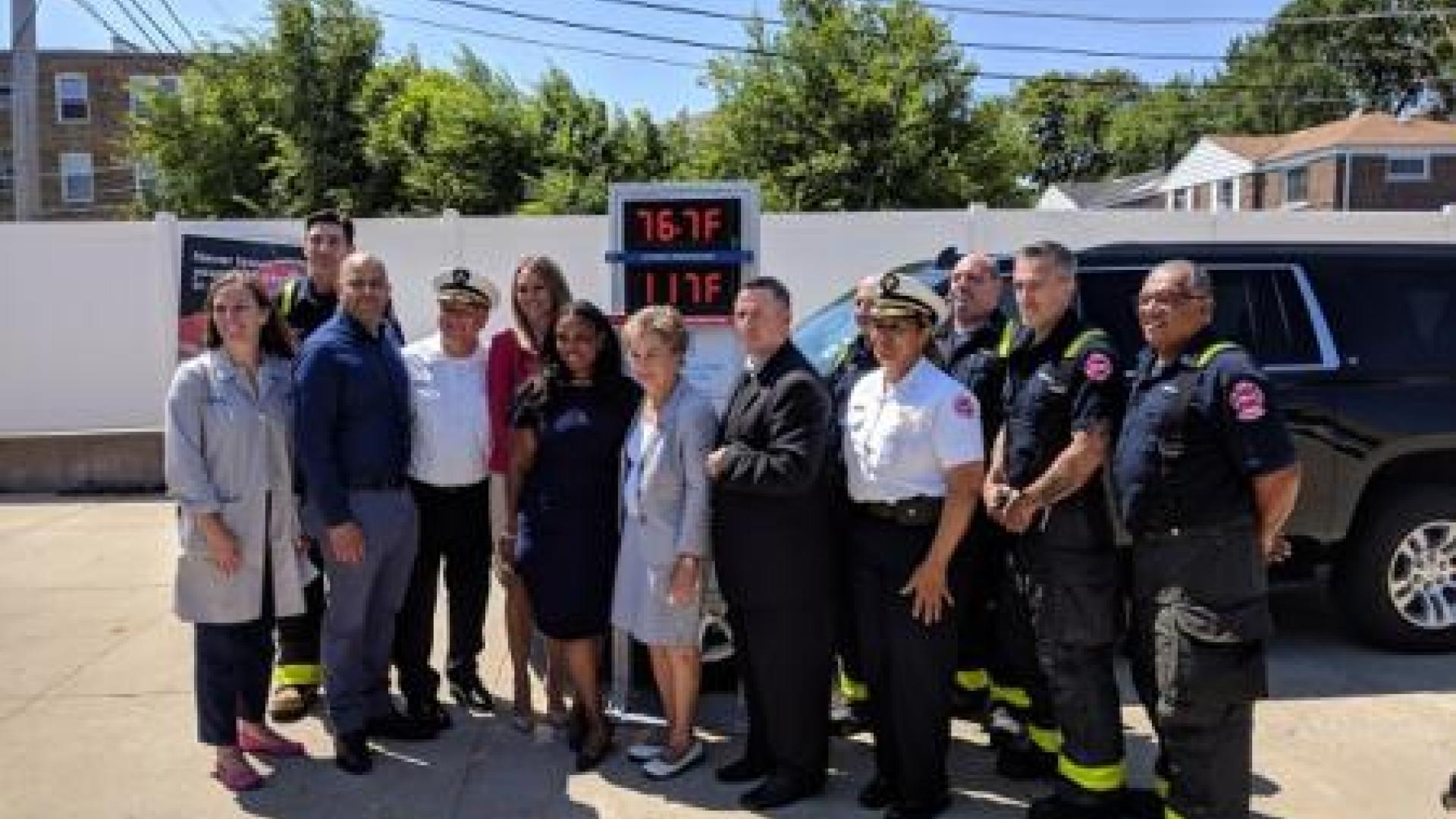Congresswoman Schakowsky and Chicago Fire Dept. Team with Safety Advocates to Highlight Dangers of Children Dying in Hot Cars for National Heatstroke Prevention Day

Chicago, IL— In light of recent tragedies locally and nationally, and as part of an effort to raise awareness for National Heatstroke Prevention Day (July 31), government representatives, first responders, health professionals, safety advocates and other partners joined together today at the Edgewood Fire Station to raise awareness and discuss ways to prevent child deaths and injuries in hot vehicles.
Since 1998, at least 818 children have died from heatstroke while unattended in vehicles. To date this year, 24 children have died of heatstroke.
"There are far too many ways for parents to lose a child that we can't control – illness, accidents – we have a duty to do everything we can do ensure that parents don't lose a child when we can prevent it. If the safety features exist, we should make sure they are built into our vehicles. You get a warning when you leave your keys in the ignition. You should get a warning when a child is left in the backseat. And that is exactly what the HOT CARS Act does," said Congresswoman Jan Schakowsky, Chair of the Consumer Protection and Commerce Subcommittee in the U.S. House of Representatives.
Congresswoman Schakowsky introduced the HOT CARS Act, H.R. 3593, last month, along with Congressmen Tim Ryan (D-OH) and Peter King (R-NY). The bill would require new vehicles to be equipped with an alarm system to alert the driver if a child or a pet might be in the backseat. Schakowsky chaired a subcommittee hearing on the bill last week. A Senate version of the bill has also been introduced.
"Tragedies from young kids dying in hot cars are 100 percent preventable," said Torine Creppy, president of Safe Kids Worldwide. "We commend Representative Schakowsky for her leadership and commitment to protecting kids, and we call on everyone to be a part of the solution. Whether you are a parent or caregiver, or just a concerned bystander, you can help save lives."
"Even one hot car death is too many, and it is unbelievably tragic that the United States lost a record number of children to these entirely preventable situations last year," said Kelly Nantel, vice president of communications and advocacy for the National Safety Council. "We applaud Congresswoman Schakowsky for introducing the Hot Cars Act and thank area leadership for drawing attention to this important issue."
Heatstroke occurs when the body is unable to cool itself quickly enough. Young children are particularly at risk. A child's body heats up three to five times faster than adult's. When a child's internal temperature reaches 104 degrees, major organs begin to shut down, and when the temperature reaches 107 degrees, the child can die.
Parents, caregivers and bystanders are encouraged to help reduce the number of heatstroke deaths by remembering to ACT.
- A: Avoid heatstroke-related injury and death by never leaving a child alone in a car, not even for a minute. And make sure to keep your car locked when you're not inside so kids don't get in on their own.
- C: Create reminders. Keep a stuffed animal or other memento in your child's car seat when it is empty, and move it to the front seat as a visual reminder when your child is in the back seat. Or place and secure your phone, briefcase, or purse in the back seat when traveling with your child.
- T: Take action. If you see a child alone in a car, call 911. Emergency personnel want you to call. They are trained to respond to these situations. One call could save a life.
Text of the legislation can be found at bit.ly/2OwpDeg. For more information on preventing child heatstroke deaths, please visit noheatstroke.org and www.safekids.org/heatstroke.
###
